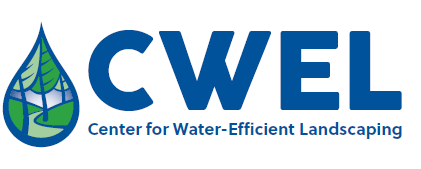Document Type
Article
Journal/Book Title/Conference
Journal of Environmental Horticulture
Issue
26
Publisher
Horticultural Research Institute
Publication Date
2008
First Page
247
Last Page
252
Abstract
We investigated optimum nitrogen rates and different growth substrates for short-term fi nish production of container and bare root shade tree liners in a pot-in-pot production system in the Intermountain West. In one study, nitrogen ranging from 0–27 g N·tree–1(0–36 lbs N·1000 ft–2) as urea was applied to quaking aspen (Populus tremuloides), ‘Autumn Blaze’ maple (Acer × freemannii ‘Autumn Blaze’), ‘Chanticleer’ flowering pear (Pyrus calleryana ‘Chanticleer’), and ‘Canada Red’ chokecherry (Prunus virginiana ‘Canada Red’). Twenty-six liter liners (#7 container) were transplanted into 57 liter (#15) containers in a retail nursery finishing pot-in-pot system. Trunk diameter growth and shoot-tip elongation measurements were recorded for one growing season. Overall, only pear had a consistent increase in terminal shoot and trunk growth in response to N at 9 g N·tree–1 (12 lbs N·1000 ft–2). Maple and chokecherry exhibited modest lateral shoot growth at 4.5 and 18 g N·tree–1 (10–24 lbs N·1000 ft–2), and aspen growth had no response to N. The second study evaluated the effect of nitrogen rates and substrate type on fi rst-year trunk diameter growth of bare root common chokecherry (Prunus virginiana) and Aristocrat flowering pear (Pyrus calleryana ‘Aristocrat’). Large bare-root liners were installed into a finishing pot-in-pot system with three substrate treatments, a proprietary, a commercial mix using several organic matter sources, and a simple composted bark-pumice mix. Five nitrogen rates, 0–9 g N·tree–1, (0–12 lbs N·1000 ft–2) were applied to each substrate. Pear again had a modest increase in trunk growth at 2.2 g N per tree, but had no response to the different growth substrates. Chokecherry trunk growth did not increase with nitrogen nor did substrate treatment substantively affect growth. This study indicates that Intermountain West retail nurseries can likely reduce first-year nitrogen applications to container and bare root liner stock during finish production, and use a simpler media to achieve optimum growth at potentially lower cost.
Recommended Citation
Gunnell, JayDee; Grossl, Paul R.; and Kjelgren, Roger, "Nitrogen and media assessment for first-year pot-in-pot production of container and bare root liners in the Intermountain West" (2008). CWEL Publications. Paper 14.
https://digitalcommons.usu.edu/cwel_pubs/14


